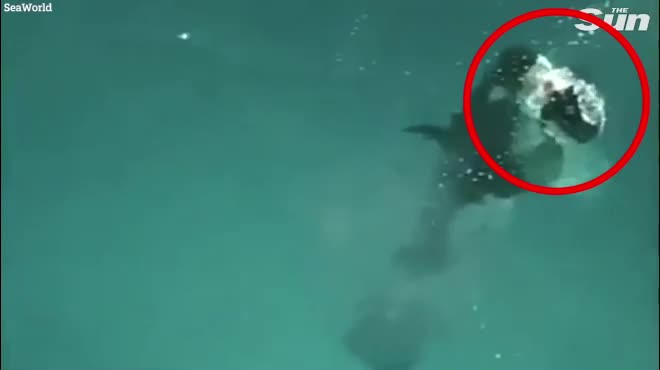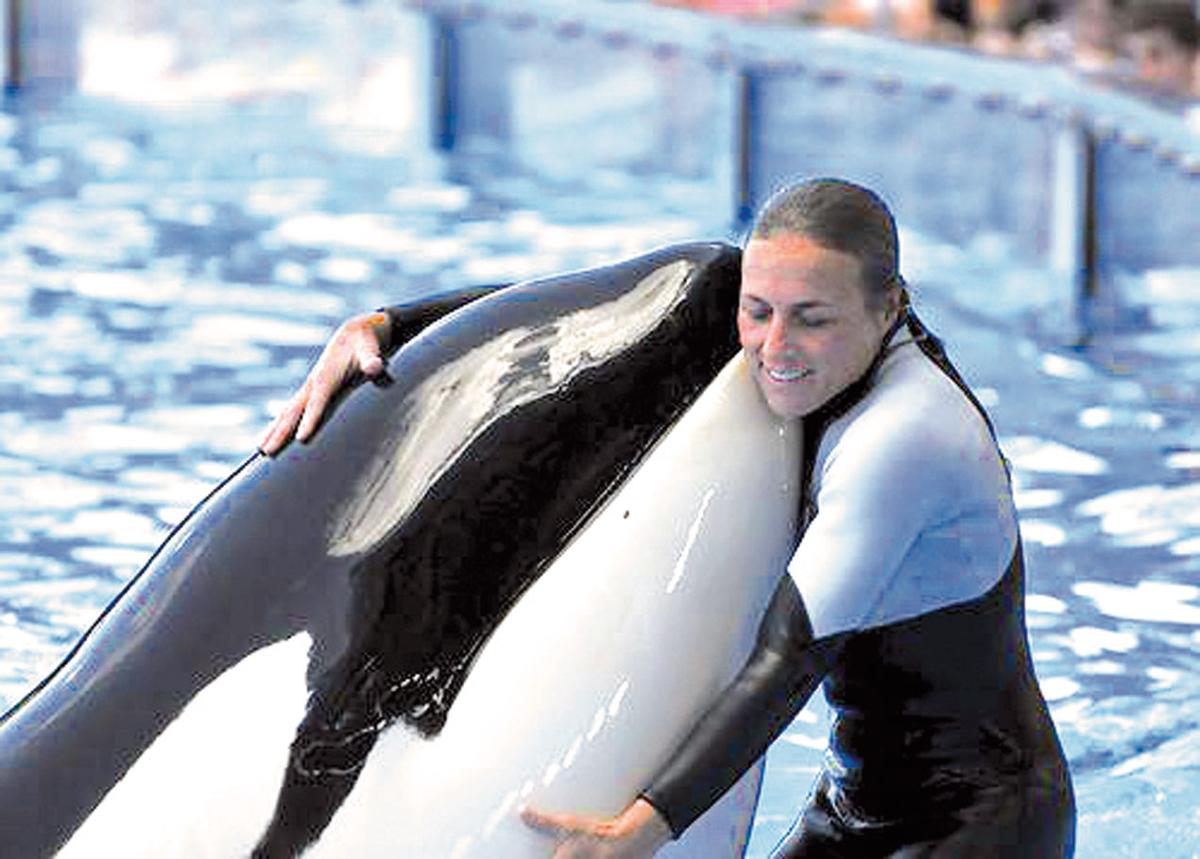
BREAKING NEWS: Viral Video of Whale Trainer Jessica Radcliffe’s “Terrifying Final Moments” Exposed as AI-Generated Hoax
Nationwide – August 20, 2025 – A chilling video claiming to depict the “terrifying final moments” of whale trainer Jessica Radcliffe, allegedly killed by an orca during a live performance at Pacific Blue Marine Park, has taken social media by storm, leaving viewers across the country horrified and heartbroken. The graphic footage, widely shared on platforms like TikTok, Facebook, and X, shows a young woman performing with a killer whale before being violently pulled underwater, with captions claiming she died ten minutes after a failed rescue attempt. However, fact-checking investigations have revealed a shocking truth: the video is entirely AI-generated, and no such trainer or incident exists. The viral sensation is a fabricated hoax, exploiting real tragedies to manipulate emotions and spark debate.

The video, which surfaced around August 10, 2025, portrays a 23-year-old trainer named Jessica Radcliffe engaging in a routine performance with an orca at the fictional Pacific Blue Marine Park. The footage shows her standing on the whale’s back, waving to a cheering crowd, before the animal suddenly lunges, dragging her underwater amid screams from the audience. Some versions of the clip include sensational details, such as claims that the attack was triggered by menstrual blood mixing with the water—a scientifically baseless assertion designed to amplify emotional impact. Social media posts, like one from @KYO____CHANNEL on X, captioned the video with, “The final smile before horror Jessica Radcliffe waves to crowd seconds later the killer whale strikes,” fueling its rapid spread and prompting hashtags like #ripjassica and #jessica.
Yet, investigations by outlets such as Hindustan Times, Times of India, and E! Online have conclusively debunked the video as a fabrication. No record exists of a marine trainer named Jessica Radcliffe, nor is there any evidence of an incident at a facility called Pacific Blue Marine Park, which appears to be entirely invented. Fact-checkers found no obituaries, marine park statements, or Occupational Safety and Health Administration (OSHA) reports to corroborate the story. Experts analyzing the footage noted telltale signs of AI manipulation: unnatural pauses in audio, robotic voiceovers, and inconsistent visuals, such as irregular water movements and the trainer’s hands, which are common flaws in AI-generated content. Forbes highlighted that AI videos often struggle with rendering finger movements accurately, a key giveaway in this case.
The hoax’s plausibility stems from its exploitation of real-life tragedies involving orcas in captivity. The video echoes the 2010 death of Dawn Brancheau, a senior SeaWorld trainer killed by the orca Tilikum during a performance in Orlando, an incident that inspired the 2013 documentary Blackfish. Similarly, the 2009 death of Alexis Martínez at Loro Parque in Tenerife and the 1991 drowning of Keltie Byrne at Sealand of the Pacific, both involving captive orcas, lend a veneer of credibility to the fabricated narrative. By borrowing elements from these documented cases, the Jessica Radcliffe story taps into public awareness of the dangers of orca captivity, making the hoax more convincing to unsuspecting viewers.

The video’s virality underscores the growing challenge of deepfake technology and misinformation in the digital age. According to International Business Times, the clip combines AI-generated visuals with archival footage, enhanced by dramatic captions to evoke outrage and sympathy. Posts on X, such as one from @theworldstops4k, urged viewers to watch the “shocking accident caught on camera,” amplifying the emotional pull with phrases like “Justice for Jessica.” The lack of immediate fact-checking allowed the video to spread rapidly, with millions of views before its falsity was widely reported. Experts note that such hoaxes thrive on negative emotions, as studies show people are more likely to share sensational or tragic content.
The Jessica Radcliffe hoax has reignited debates about the ethics of keeping orcas in captivity. While the incident is fictional, real cases like Brancheau’s highlight the risks of working with highly intelligent, social predators in confined environments. Orcas, known as killer whales, are apex predators with complex social structures, and captivity can induce stress and aggression, as seen in Tilikum’s history of three fatal attacks. The 2021 footage of Kiska, dubbed the “world’s loneliest orca,” banging her head against her tank at Marineland in Canada, further fueled public outrage over captive marine mammals. Animal rights advocates argue that these incidents—real and fabricated—underscore the need to end orca captivity, a sentiment echoed in comments on X calling for whales to “belong in the wild.”

The emotional toll of such hoaxes extends beyond misinformation. Families of real victims, like Brancheau, have spoken about the pain of seeing fictionalized tragedies trivialize their losses. The fabricated video not only misleads viewers but also exploits genuine concerns about animal welfare for clicks and engagement. Vocal Media emphasized the absence of credible evidence, urging the public to verify sources before sharing viral content.
As the Jessica Radcliffe story fades from headlines, it serves as a stark reminder of the power and peril of AI-generated content. While the video shocked viewers nationwide, its exposure as a hoax highlights the importance of critical thinking in navigating the digital landscape. For now, the focus shifts to raising awareness about real orca incidents and the ethical questions they raise, ensuring that the conversation remains grounded in truth rather than sensational fiction.